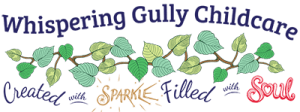Children learn through play – It should not stop at preschool
Children learn through play – it shouldn’t stop at preschool
The transition from preschool to school is a big deal for many children and parents. Over the next few weeks, many preschoolers will take part in a transition program, designed by their teachers, to prepare them for school.
They’ll meet their foundation teachers, spend some time in a classroom and hopefully make some new friends.
These children’s education has so far focused on play-based learning. This means they’ve learnt through exploring and playing, supported by skilled early childhood educators.
But they’re about to enter a world of formal learning. Although play-based learning does happen in schools, there tends to be a stronger focus on instruction.
The current system isn’t working for many students. One-quarter of children who start school aren’t developmentally ready for this transition and levels of mental ill-health among children are concerning.
Many educators and researchers argue more play in the early years of school could better support children’s transition and learning. Parents think so too. In a recent survey, 93% of parents acknowledge the benefits of play and 72% said the first years of school should focus more on play-based learning.
If we’re genuinely committed to improving outcomes for all children – and we know play benefits learning – we need to better integrate play-based learning into schools’ formal learning structures.
How do we learn through play?
Increasing play-based learning in schools means changing how we think about playing. When many of us think about play, we probably think of free play, which is unstructured and directed by children, usually without adult involvement.
Play-based learning, though, is more usefully conceived as a spectrum, with free play at one end and teacher-guided, playful learning at the other. In between are a variety of methods either entirely based on play, or incorporating elements of it
.For example, a skilled educator can help children discover new ideas when they play with water. The educator might encourage children to playfully experiment with water tubs and toys in a way that allows them to develop their own hypotheses about how water behaves in certain situations and why.
The educator could work with the children to test their hypotheses, questioning and talking to them about what they observe during their play.



